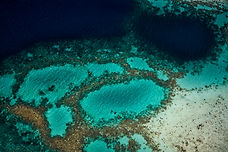
Pacific Conservation Database
Green Climate Fund: Adapting tuna-dependent Pacific Island communities and economies to climate change
PIRT Member organisations
Conservation International (CI), Pacific Community (SPC)
Other partner organisations
Forum Fisheries Agency (FFA)
Food and Agriculture Organization of the United Nations (FAO)
Countries of implementation
Cook Islands, Fiji, Kiribati, Marshall Islands, Federated States of Micronesia, Nauru, Niue, Palau, Papua New Guinea, Samoa, Solomon Islands, Tonga, Tuvalu, Vanuatu
About
This programme aims to: 1) increase supply of tuna for domestic consumption as an adaption to degradation of coral reefs and the resulting food insecurity for vulnerable populations; and 2) usher in the reforms needed to minimise the risks for citizens of countries with economies that are vulnerable to climate-driven redistribution of tuna. CI is the Implementing Agency for this project and the Pacific Community (SPC) is the lead Executing Entity.
Framework Action Tracks
05 – Nature-based Solutions (NbS) to sustain our social-ecological systems, 08 – Marine ecological integrity, 13 – Ending unsustainable fishing
Status
Awaiting review
